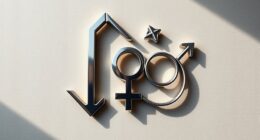Numerology lacks empirical evidence, making it unreliable. The subjective nature of numerology contributes to its inconsistencies. Inaccurate calculation methods lead to varied interpretations, impacting the accuracy of profiles. Numerology's arbitrary number associations lack concrete proof, undermining its predictive credibility. While numerology entices with promises of insight, its lack of scientific support hinders its dependability. The complexities of assigning mystical meanings to numbers pose challenges to its validity. Further exploration reveals the questionable accuracy of numerology, highlighting the need for a critical evaluation of its claims. Moreover, the *origin of numerology* is often traced back to ancient civilizations, where mystical interpretations of numbers emerged in the context of spiritual beliefs rather than scientific examination. This historical foundation, while intriguing, does little to address the modern demand for evidence-based practices, further reinforcing the skepticism surrounding its legitimacy.
Key Takeaways
- Numerology lacks empirical evidence for its predictive claims.
- Arbitrary assignments of meanings to numbers undermine credibility.
- Inaccurate calculation methods lead to discrepancies in interpretations.
- Lack of standardized rules in numerology contributes to inconsistencies.
- Subjective interpretations and varying perspectives challenge numerology's reliability.
Numerology Misconceptions Unveiled
Let's uncover the misconceptions surrounding numerology. One common misunderstanding is the belief that your life path number holds a definitive key to your future. Numerology enthusiasts assign significance to this number based on your birthdate, claiming it influences your life trajectory. However, critics argue that this oversimplified approach lacks scientific backing.
Another misconception revolves around Angel Numbers, where specific sequences of numbers are believed to convey divine messages. While it may feel reassuring to interpret these numbers as signs from higher beings, skeptics point out the subjective nature of such interpretations. Without concrete evidence, these associations may not hold up under scrutiny.
Furthermore, the notion that numerology can provide clear-cut answers and make sense of life's complexities is misleading. The human experience is far too intricate to be distilled down to a single number or a series of digits. While numerology can be a fun and introspective tool for self-reflection, it's essential to approach it with a critical eye and an open mind.
The Fallacy of Number Associations
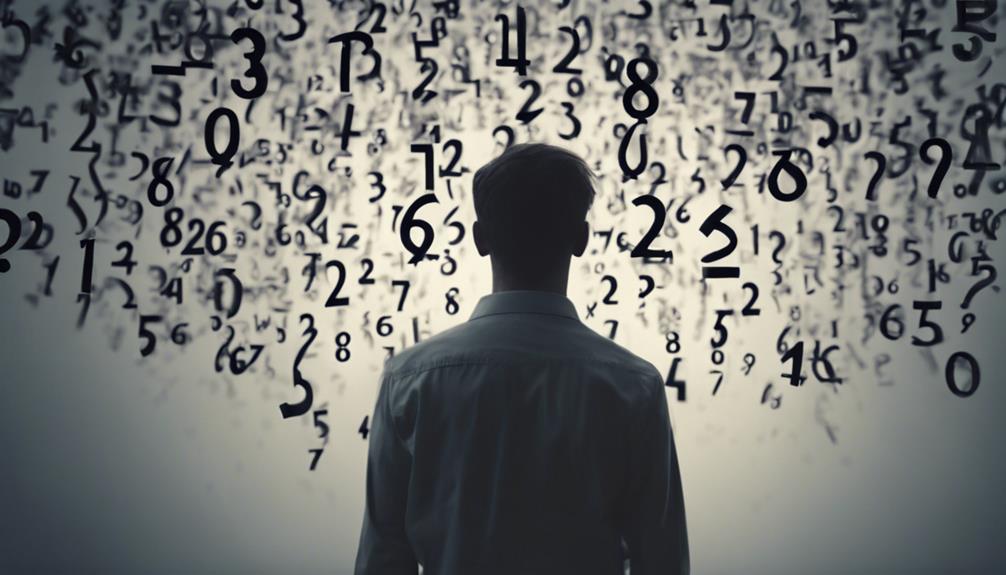
Number associations in numerology lack empirical evidence and scientific backing. They rely instead on arbitrary meanings assigned by numerologists. These connections between numbers and life events are subjective and lack concrete support, undermining numerology's predictive credibility.
The fallacy stems from assuming that numbers possess inherent special qualities or powers without substantial proof.
Misleading Number Interpretations
Assigning arbitrary meanings to numbers in numerology is a common fallacy that leads to misleading associations and conclusions. When individuals attribute specific traits or characteristics to numbers based on factors like birth date or numerical value, they often create connections that lack empirical evidence. To highlight the subjective nature of numerology interpretations, consider the following table:
| Number | Arbitrary Meaning | Example of Misleading Association |
|---|---|---|
| 7 | Luck, spirituality | Believing all individuals born on the 7th are inherently lucky. |
| 13 | Unlucky, misfortune | Assuming anyone with 13 letters in their full name will face constant misfortune. |
| 666 | Evil, malevolence | Associating the number with negative intentions without factual basis. |
These examples illustrate how assigning unfounded significance to numbers can lead to misleading conclusions and inaccuracies.
Lack of Scientific Evidence
Numerology's claims of cosmic significance lack empirical support, casting doubt on the validity of number associations. When examining the lack of scientific evidence behind numerology, I'm sure many individuals would be surprised by the following facts:
- Scientific studies have consistently failed to provide substantial proof of numerology's influence on human life outcomes.
- The core premise of numerology, which suggests specific number patterns shape destiny, remains unsubstantiated by empirical research.
- Assigning mystical significance to numbers in numerology is mainly based on subjective interpretations rather than concrete evidence, raising skepticism among those seeking a more evidence-based approach to understanding the world.
Calculation Discrepancies in Numerology

When calculating life path numbers in numerology, discrepancies can arise due to inaccurate methods and varying approaches to determining birth codes. Different calculation techniques may lead to diverse interpretations of personality traits and life challenges associated with a specific life path number.
Precision is important in assigning numerical values to birth date components to guarantee accurate sub lesson analysis. Understanding the significance of each number in the calculation process is essential for obtaining a true reflection of one's life path number.
Inaccuracies in adding up birth date numbers can misrepresent key aspects of an individual's numerology profile, potentially impacting the guidance and insights provided by numerological readings. To mitigate these discrepancies, practitioners must adhere to standardized methods and pay close attention to detail when calculating life path numbers.
Uncovering Numerology's Inconsistencies
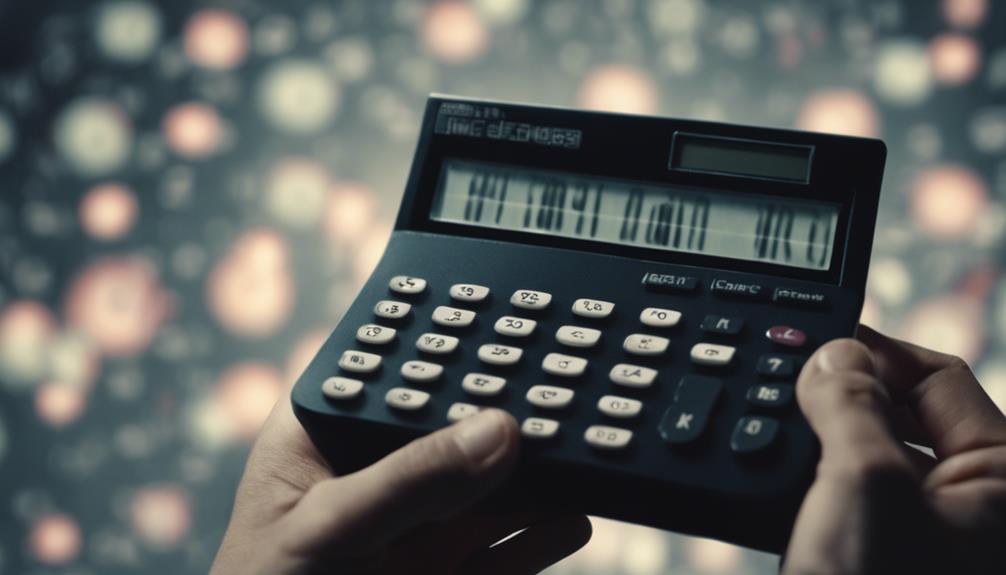
In exploring the domain of numerology, it becomes evident that inconsistencies within the practice cast doubt on its validity and reliability. Numerology, often touted as a predictive tool, falls short due to various discrepancies that raise skepticism among those seeking concrete answers.
Here are some key inconsistencies that challenge the foundation of numerology:
- Lack of Empirical Evidence: Numerology lacks substantial scientific evidence to support its claims, relying instead on subjective interpretations that vary widely among practitioners.
- Arbitrary Assignments: The practice of numerology involves assigning meanings to numbers in a seemingly arbitrary manner, leading to interpretations that are open to wide-ranging personal biases.
- Vague Predictions: Numerologists often make generalized statements that lack specificity, making it easy for individuals to interpret these predictions to fit their unique circumstances, thereby diminishing the accuracy and reliability of the practice.
These inconsistencies highlight the need for a more rigorous and evidence-based approach in evaluating the validity of numerology.
Numerical Interpretation Challenges Exposed
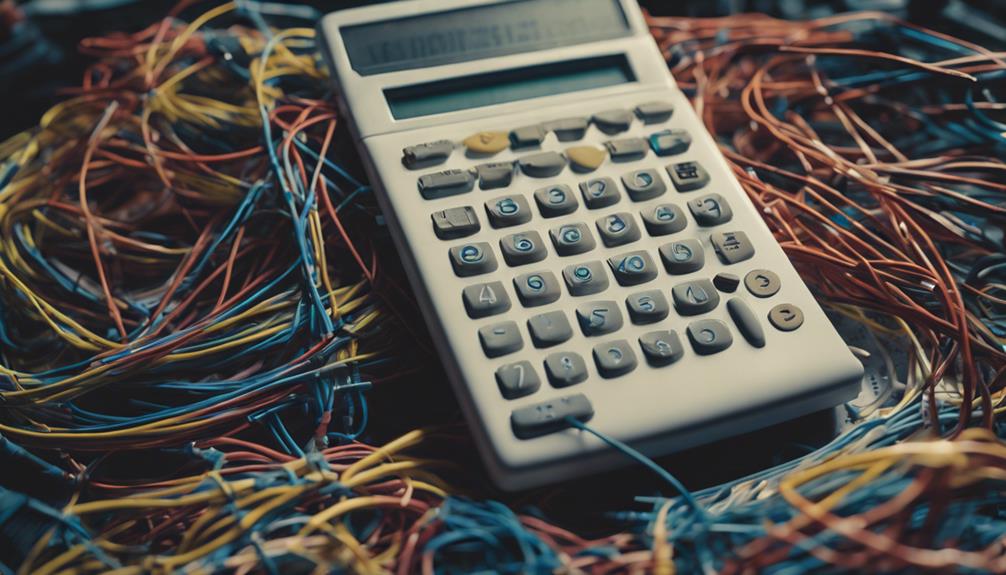
Numerical interpretation in numerology poses several challenges that we must address.
The limitations of numerical symbolism, the inherently subjective nature of numerology, and the risks of misinterpreting numbers are key areas of concern.
Understanding these challenges is pivotal in critically evaluating the validity of numerological interpretations.
Numerical Symbolism Limitations
Exploring the limitations of numerical symbolism reveals the challenges inherent in interpreting numbers within the domain of numerology.
- Numerical symbolism lacks universal consistency, leading to varied interpretations and meanings.
- Different numerologists may assign different significances to the same numbers, creating confusion and inconsistency.
- The subjective nature of numerical interpretation allows for diverse perspectives and beliefs, contributing to the lack of concrete evidence.
These limitations underscore the arbitrary nature of attaching specific meanings to numbers in numerology. The varied interpretations and lack of standardization within numerical symbolism demonstrate the complexities and uncertainties that arise when attempting to derive concrete insights from numbers.
This fluidity in interpretation highlights the speculative nature of numerology and raises questions about its reliability as a predictive tool.
Subjective Nature of Numerology
Delving into the subjective nature of numerology reveals the intricate web of interpretations individuals weave based on personal beliefs and experiences. Numerology's lack of standardized rules or scientific evidence for specific number meanings contributes to interpretation challenges.
These discrepancies can lead to conflicting advice, creating a spectrum of opinions on the significance of numbers in personal development. The flexibility in interpretations afforded by numerology's subjective nature allows for a wide range of perspectives.
However, without objective validation or empirical evidence, numerology remains open to individual interpretation and skepticism. This subjectivity highlights the diverse ways in which people approach and derive meaning from numbers, showcasing the varied landscape of beliefs and practices within the field of numerology.
Misinterpretation Risks Involved
Subjective interpretations of numbers in numerology pose significant risks of misinterpretation, potentially leading to inaccurate conclusions and confusion for those seeking guidance. When delving into numerical meanings, it's vital to acknowledge the following:
- Diverse Interpretations: Numerical interpretations can vary widely depending on the practitioner's beliefs and biases, making it challenging to establish a universal understanding.
- Arbitrary Assignments: Individuals may assign arbitrary meanings to numbers, deviating from traditional interpretations and introducing inconsistencies.
- Lack of Standardization: The absence of standardized guidelines in numerology leaves room for misinterpretations and errors to creep in, undermining the reliability of the guidance provided.
Navigating these challenges requires a critical eye and an awareness of the subjectivity inherent in numerological analyses to guarantee accurate and meaningful insights.
The Complexities of Birth Code Calculations

Unraveling the intricacies of birth code calculations requires meticulous attention to detail and precision in breaking down the components of one's birth date. By correctly summing up individual elements such as the day, month, and year, we reveal a personalized code that offers unique sub lessons. These sub lessons, derived through different calculation methods, provide valuable insights into our personal development journey. Each number within the birth code holds significance, offering clues to our inherent traits and the challenges we may face.
Understanding the complexities of birth code calculations is essential for interpreting the nuances of our character and life path. Accurate calculation of the birth code can enhance self-awareness by shedding light on our strengths, weaknesses, and ultimate life purpose. It's through this precise analysis that we can gain a deeper understanding of ourselves and navigate our life's journey with clarity and purpose. The complexities of these calculations serve as a roadmap to self-discovery and growth, offering a framework for personal development and introspection.
Debunking Numerological Accuracy
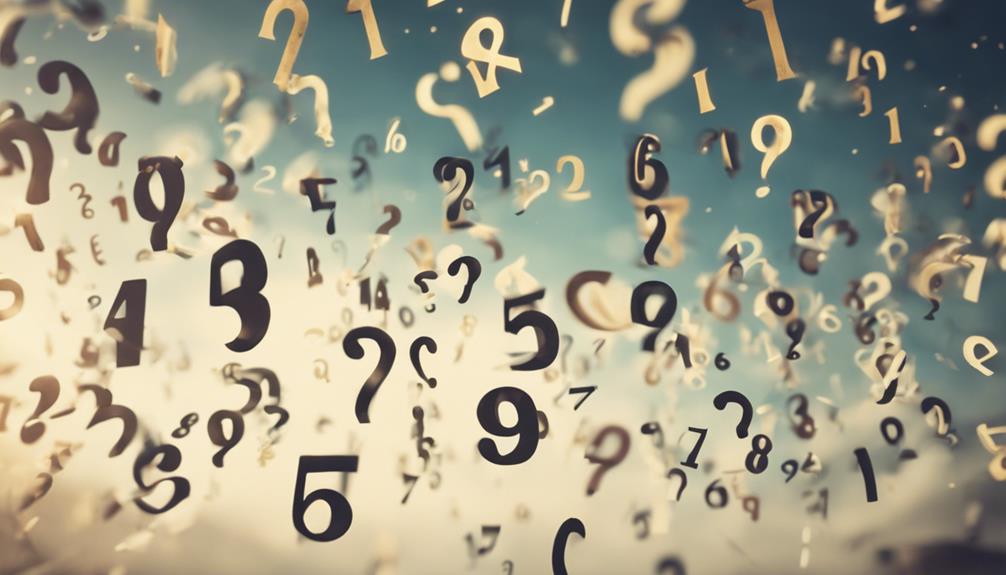
Numerological accuracy is often debunked due to the lack of empirical evidence supporting its predictions of life events. Despite claims made by numerologists, studies have shown that their predictions are no more reliable than random chance. The reliance on subjective interpretations rather than objective scientific methods undermines the credibility of numerology.
Here are three reasons why numerological accuracy is called into question:
- Lack of Empirical Evidence: Numerology lacks concrete evidence to validate its claims, leading to skepticism among researchers and scientists.
- Subjective Interpretations: The principles of numerology are based on subjective interpretations, making it challenging to establish a standardized and reliable predictive system.
- Cognitive Biases: Critics argue that the apparent accuracy of numerology results from cognitive biases and the human tendency to perceive patterns where none exist.
In light of these factors, the accuracy of numerology remains highly questionable, highlighting the need for more rigorous scientific scrutiny in evaluating its validity.
Frequently Asked Questions
How Do You Add up Your Numerology Number?
When calculating your numerology number, simply add up the individual digits of your birth date. This sum provides insight into your personality traits, life path, and potential challenges.
Remember to reduce the final sum to a single-digit number, except for master numbers 11 and 22. Accurate calculations are essential for meaningful interpretations and guidance in numerology.
Understanding how to add up your numerology number is key to accessing its valuable insights.
What if Your Life Path Number Doesn T Match?
If your life path number doesn't match, exploring alternative calculation methods can reveal unique insights aligned with your true traits. Embracing diverse techniques leads to a more accurate reflection of your life purpose.
Different approaches expose hidden aspects, enhancing self-awareness and personal growth. By delving into variations and sub lessons, a deeper understanding of character emerges.
Stay open to these alternative paths for a richer exploration of your numerological journey.
What Is the Most Powerful Numerology?
The most potent number in numerology is the Life Path Number, revealing core personality traits and life purpose. Ranging from 1 to 9, with master numbers 11, 22, and 33, these numbers hold spiritual significance.
Calculated from birth dates, they guide major life decisions, relationships, and personal growth. Understanding one's Life Path Number offers profound insights, empowering individuals to navigate life with clarity, purpose, and self-acceptance.
Which Number Is Bad in Numerology?
We find the number 4 to be deemed unfavorable in numerology due to its association with death across various cultures. The negative connotations linked to this number often lead individuals to avoid it in decision-making processes.
In Chinese and Japanese traditions, the avoidance of the number 4 stems from its resemblance to the word for death in their languages. This belief in the unlucky nature of 4 can influence choices in architecture, such as skipping the fourth floor in buildings.
Conclusion
To sum up, numerology may seem intriguing at first glance, but upon closer examination, its foundations crumble under scrutiny.
The so-called 'accuracy' of number associations and birth code calculations is riddled with inconsistencies and fallacies. It's like trying to fit a square peg into a round hole – it just doesn't add up.
Despite its popularity, numerology fails to stand up to logical analysis, leaving us skeptical of its supposed mystical powers.







